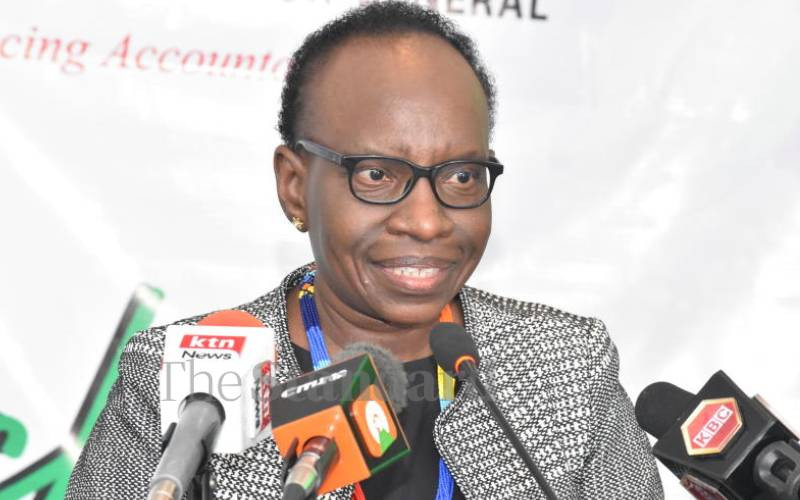×
The Standard e-Paper
Stay Informed, Even Offline

Auditor General Nancy Gathungu has detailed how Uhuru Kenyatta's administration in the sunset days of his reign withdrew Sh6.3 billion from the Consolidated Fund without the approval of Parliament.
Gathungu blamed the Treasury for the withdrawal of the funds.